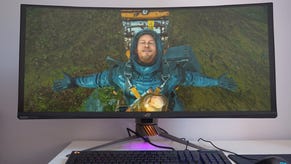Google's 'Project Stream' game-streaming service debuts with Assassin's Creed Odyssey
Can a stream capture the majesty of Greek oceans?
OnLive may have been and gone, but the tech giants still see a future in remotely streamed games - soon, Google will be getting in on the action. Officially announced on the Google blog here, the unimaginatively named Project Stream claims it can push high-end games from Google's servers directly onto your browser screen with minimal lag. I'm interested to see if they can pull it off.
While sadly limited to American sign-ups only and requiring a 25 megabit connection at minimum, Google are taking sign-ups for Project Stream now, and plan to begin limited testing on October 5th. Streaming direct and interactive via Chrome, they'll be showcasing their tech with the ever-photogenic Assassin's Creed Odyssey. Take a look at it streamed and re-captured below.
While plucky little outfit OnLive may have crashed and burnt in their early attempt to bring game streaming to the mass market, Sony have seen some success with their PlayStation Now service. Even PC users can play older PlayStation games remotely now via the subscription service, although you're at a bit of a disadvantage without an official Sony controller. Given that Project Stream will hopefully be running native PC versions of games, a wider variety of input devices should be supported, as well as control rebinding. Fingers crossed.
Sadly, the Project Stream test-run is limited to America only. I'm hoping they'll be testing it in other regions soon. Latency and connection stability is hugely important when streaming like this, and until they recently rolled out fiber-optic on my street, the best money could buy here was a 20 megabit connection below even the basic testing requirements. There's every chance that Google will skip on some countries if they do end up committing to Project Stream.
Project Stream begins testing on October 5th with Assassins Creed Odyssey. You can read more about it here, and sign up here. You can find the full system requirements here.










